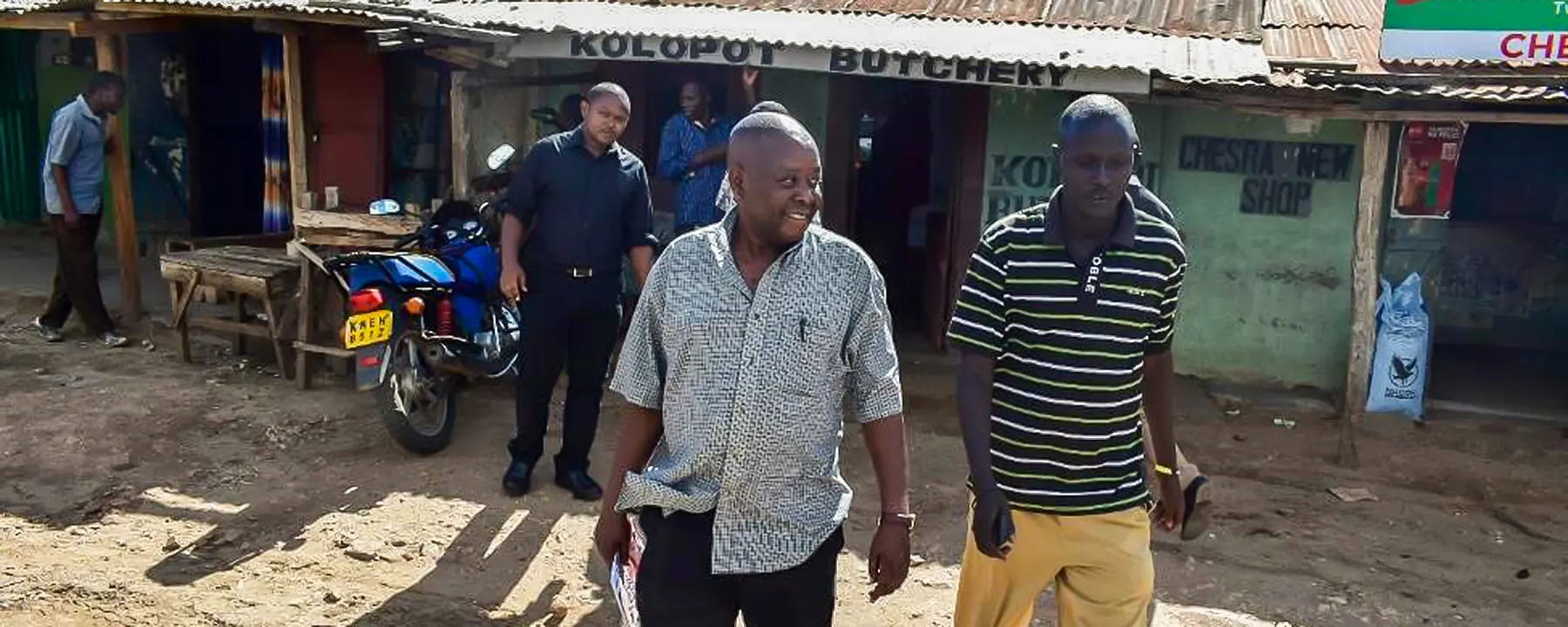USAID's Kenya Youth Employment and Skills (K-YES) program emphasized job skills and access to financial services
Objective
To provide disenfranchised Kenyan youth (ages 18-35) the skills, assets, and support they need to compete and succeed in the workplace.
Approach
Foster partnerships between Kenyan youth, local industries, and government to enhance employment opportunities and overall youth workforce competitiveness through skills and vocational training for those who have not completed secondary education.
Impact
K-YES connected more than 300,000 youth to finance services, relevant job and business skills and youth mentorship networks, and supported more than 50,000 youth to gain new or better employment.
In 2015, the U.S. Agency for International Development (USAID) launched the Kenya Youth Employment and Skills (K-YES) program, led by RTI. The five-year program provided disenfranchised youth with the skills, assets, and support to compete and succeed in the workplace.
K-YES worked with private-sector companies (including Kenya Commercial Bank and Coca-Cola), local county governments, and vocational training centers to build action-oriented, multi-stakeholder compacts that resulted in better education for Kenyan youth who had not completed secondary education. Students were linked to employment support services, such as apprenticeships, and financial and career development services that increased their chances for formal employment or self-employment and reduced drivers of rural-urban migration.
K-YES was also at the forefront in combating the spread of COVID-19. The program facilitated its youth beneficiaries to lead the production and dissemination of materials that help prevent the spread of the virus, including 77,000 liters of soap, 20,000 face masks, and over 300 water tanks for handwashing.
K-YES was active in nine counties: Bungoma, Garissa, Kericho, Kisii, Kwale, Migori, Nairobi, Nyeri and West Pokot.
Changing the perception of vocational training
K-YES worked in partnerships with Technical and Vocational Education and Training (TVET) institutions to enhance their capacity, service delivery, partnerships, and sustainability. Understanding the challenge of boosting the relevance and quality of training and improving the public image of TVETs, K-YES developed a Behavior Change Communications Strategy with the goal of demystifying negative perceptions in target counties.
The key messages promoting TVETs and blue-collar jobs led to an increase in enrollment in training facilities. The training facilities used a nationally accredited vocational curriculum developed by K-YES in partnership with over fifty organizations that aligned with industry needs.
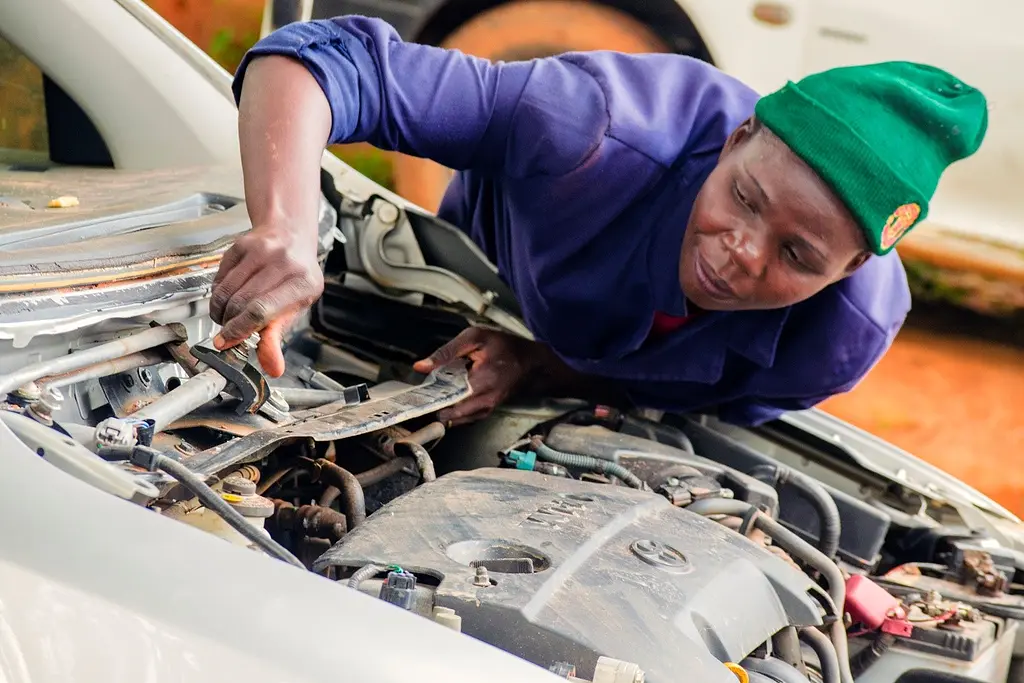
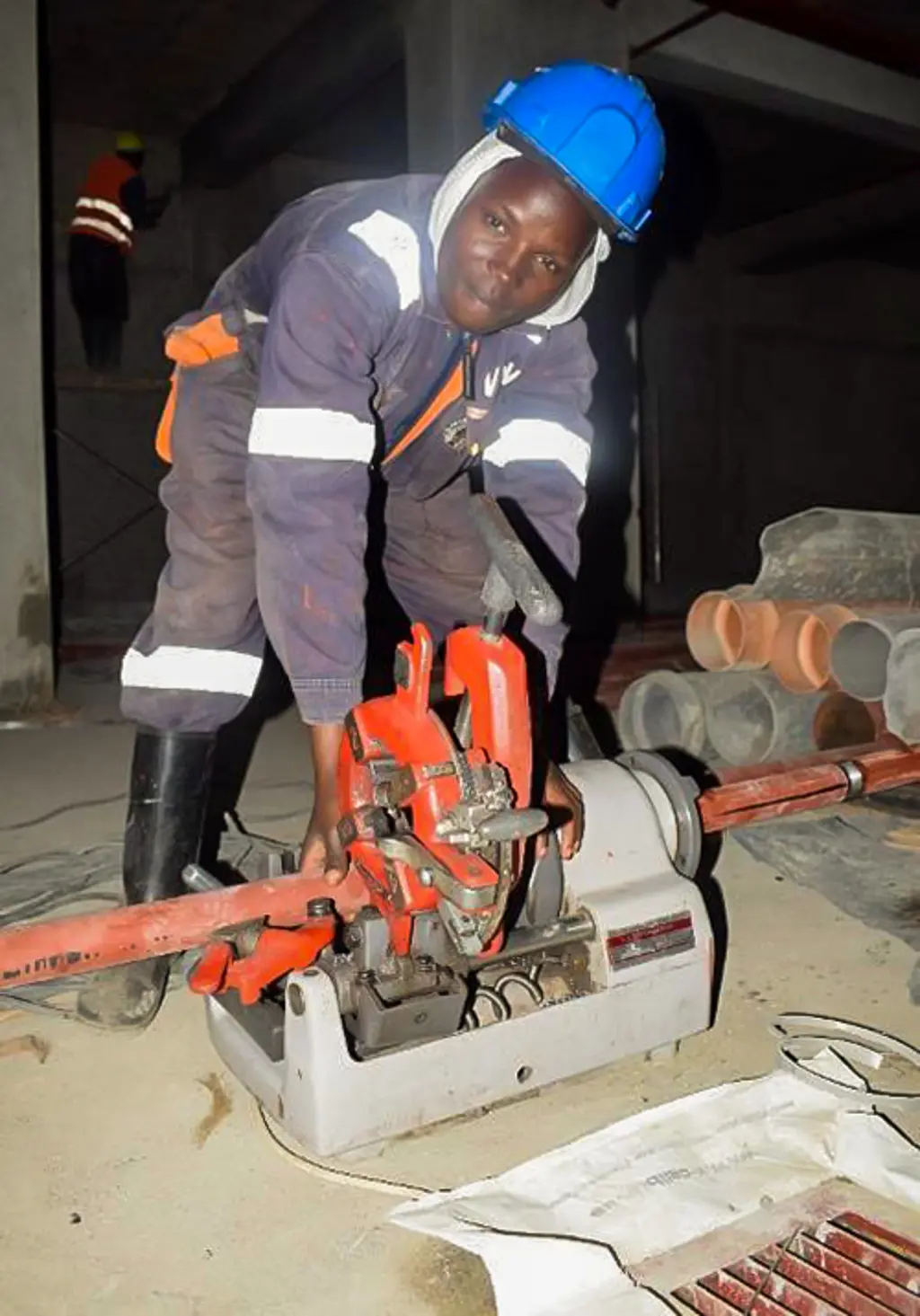
Catherine Wanyonyi became the only female plumber at a construction site in Nairobi after benefiting from a K-YES sponsored competency-based training program. Photo by Silvano Ateka/K-YES
Investing in youth
Kenyan youth often find that large financial institutions have measures in place that discourage them from raising capital. To help young people create or grow their business, K-YES partnered with community-level trainers across Kenya to host training sessions on managing debt, saving, budgeting, and tapping into existing financial services. The program also worked with Village Savings and Loan Associations to create high saving rates and access to capital.
In early 2018, a group of young people from Chepareria, West Pokot created a joint business named Chepareria Butchers Self Group. Most members of the group dropped out of school at the elementary level and continuously faced challenges for work. Turned down by banks for their loan request, the group was forced to collect contributions from their own savings to raise capital.
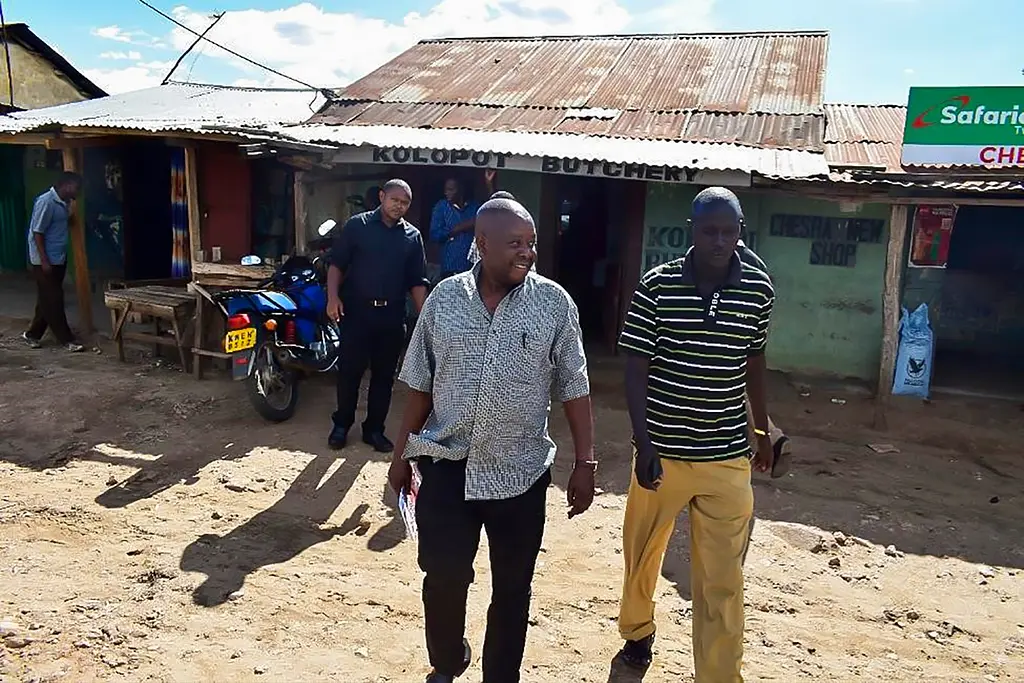
“We attended a business training in early 2018 that enlightened us on how to package and position ourselves as a profitable entity to lure financial support from banks,” said Raymond Lotilem, a founding member of the Chepareria Butchers Self Group.
The training provided by K-YES helped the group successfully apply for a loan from Kenya Commercial Bank which enabled them to expand their business and becoming a leading distributor of goat meat in Cherpareria that employs many youths across seven local butcheries.
K-YES program interventions helped more than 100,000 youth received similar trainings and more than 50,000 have obtained jobs.
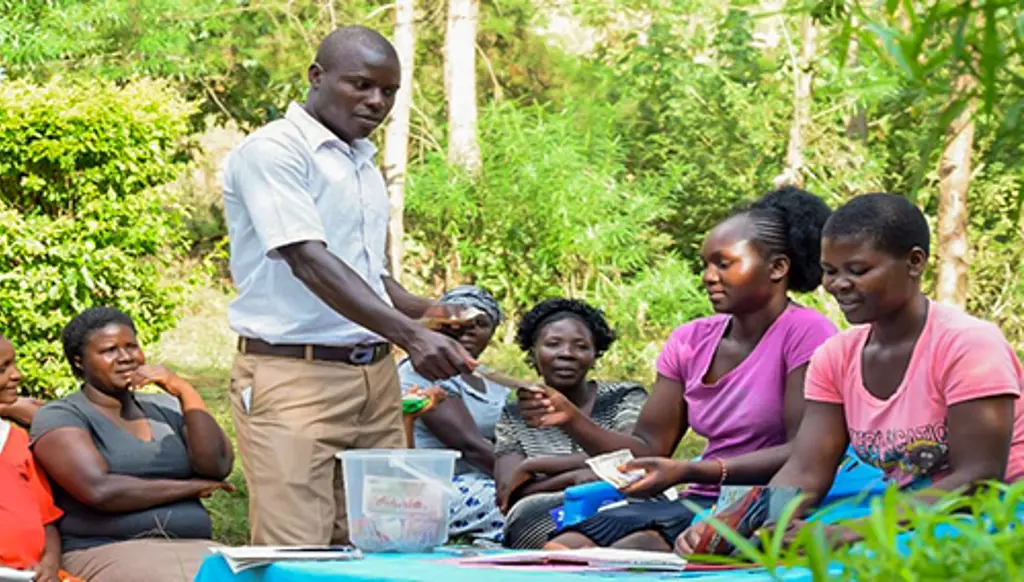
Eliazar Owuor helped start Ading’o, a group of members and K-YES community trainers who met weekly to collaborate and review progress. Photo by Silvano Ateka/K-YES
Addressing the drivers of violent extremism
K-YES program interventions also helped to prevent youth from radicalizing by partnering with key stakeholders in Kwale County, including religious leaders and potential employers, to create a cross-sectoral approach to address the drivers of radicalism. The program hosted regular forums that included trainings on leadership and life skills to mobilize youth against involvement in violent extremism.
In 2018, more than 2,000 young people participated in conversations surrounding issues affecting youth and extremism at a county-wide youth summit.
Gatherings like these offered a chance for Kenyan youth to resist the temptation to radicalize and give them opportunities to network as well as register for and acquire national ID cards. Through the K-YES program, over 32,000 youth now have an ID card which plays an important role in the security and social economic development of the country.
K-YES impact
K-YES worked with 50+ companies to develop a demand-driven, nationally accredited vocational curriculum and established over 122 new public-private partnerships in key sectors. More than 300,000 youth were offered access to financial services, business and work readiness skill training and youth mentorship networks that resulted in more than 50,000 youth gaining new or better employment.
- International Rescue Committee
- Land O’Lakes International
- McKinsey & Company
- Mobile Accord
- National Youth Bunge Association
- SSG Advisor
